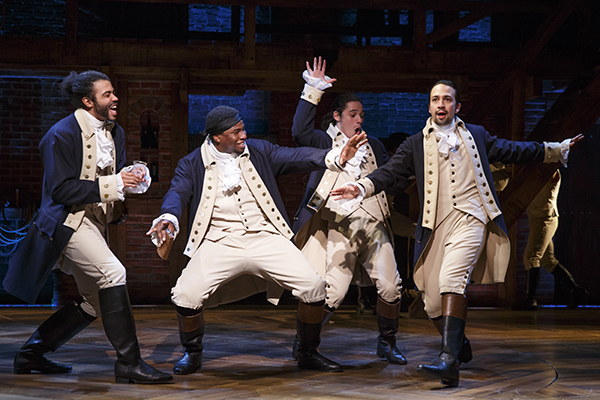Write Like You’re Out of Time! Productivity Advice from Alexander Hamilton and Company
Are there a million things you haven’t done? You’re not alone.
Alexander Hamilton was a massively productive statesman and writer. There are more than a few reasons to look to the founding father-without-a-father for inspiration: Moving his plan for a national bank through Congress, commanding troops under General Washington, changing the location of our nation’s capitol, writing 51 of the 85 essays in The Federalist Papers all by himself. How did do it all?
Well, if Lin-Manuel Miranda’s hit Broadway show is to be believed, he got a lot farther by working a lot harder, by being a lot smarter, by being a self-starter. How can you learn to write like you’re running out of time? Here’s some advice from some of the busiest minds-at-work in colonial America.
“Men give me credit for some genius. All the genius I have lies in this; when I have a subject in hand, I study it profoundly. Day and night it is before me. My mind becomes pervaded with it. Then the effort that I have made is what people are pleased to call the fruit of genius. It is the fruit of labor and thought.” – Alexander Hamilton
The sheer volume of work that Hamilton produced in his life revolved around his ability to focus and get work done. While others might have decided to take a break, or made the choice to talk less/smile more, Hamilton went the route of writing as much as he could. For writers, that means picking up a pen (or keyboard) and just writing as much and as often as possible!

“Perseverance and spirit have done wonders in all ages.” – George Washington
Growing up Hamilton faced challenge after challenge: losing his family members to illness and suicide, struggling to earn a wage to survive. Still, he spent his time reaching for every opportunity he could find to advance himself. While not everyone faces the challenges Hamilton did, everyone knows the struggle of persevering when the going gets tough – especially writers. Persevere!
“Experience is the oracle of truth; and where its responses are unequivocal, they ought to be conclusive and sacred.” – Alexander Hamilton, Federalist No. 20, December 11, 1787
The work that got Hamilton discovered? A letter to his father about the hurricane he’d just survived. This testament to his pain begins “I take up my pen just to give you an imperfect account of the most dreadful hurricane…” This ‘imperfect account’ was discovered by Hugh Knox, a local part-time journalist who began sharing it with others, eventually leading to its publication in The Royal Danish American Gazette in September of 1772. While he hadn’t seen much of the world, he took the initiative to write about what he had experienced. However small or personal an experience might seem to you, sharing it with the world is something only you can do. No story is too small when it comes from a place of experience and truth.
“We have it in our power to begin the world over again.” – Thomas Paine
In New York, Hamilton became a new man, taking on even more responsibilities and connecting with the people that could help him become the person he wanted to be. He aggressively sought out the education and connections that would get him ahead, things that would set him up for success going forward. As a writer, it’s up to you to build your world up over again! Find the people you want reviewing your manuscripts, figure out if there’s a book you should be reading or a class that will help you improve your skills. If there’s something that can get you where you want to be, don’t throw away your shot!

“Determine never to be idle. No person will have occasion to complain of the want of time who never loses any. It is wonderful how much may be done if we are always doing.” – Thomas Jefferson
What does Hamilton do that makes him such a hero? He changes the game. He raises the stakes. He confounds the low expectations others have of him. He focuses and simply does more work in less time with greater efficiency than his peers. In the end, Hamilton used up all the time he had writing, working, and creating as much as he could.
The lesson for writers who aspire to the kind of prolific portfolio Hamilton created? Write those ‘imperfect accounts’ that need to be written. Those writings might just wind up being exactly what the world needs to hear. And maybe someday they’ll turn your life into one of the biggest hits on Broadway!




